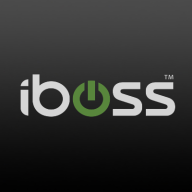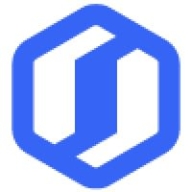


Skyhigh Security and Cisco Umbrella compete in the cloud security solutions category. Skyhigh Security has the upper hand in identifying and analyzing shadow IT whereas Cisco Umbrella is particularly strong in DNS layer security and threat intelligence.
Features: Skyhigh Security provides extensive insights into cloud service usage with risk assessments and analytics, its capabilities to categorize risks such as data, user, legal, and business risks enable businesses to make informed decisions. User analytics and deep DLP integration enhance compliance. Cisco Umbrella is known for its DNS layer security and threat intelligence, providing protection against ransomware and phishing with easy deployment and compatibility with existing infrastructure.
Room for Improvement: Skyhigh Security's interface can be sluggish, requiring manual confirmations. Report generation lacks flexibility, particularly in filtering data. Cisco Umbrella needs improvements in reporting capabilities, better DNS service support for IPv6, and better integration with existing SIEM products. Its pricing model can be confusing to some users, who also desire improved support channels.
Ease of Deployment and Customer Service: Skyhigh Security can be deployed across hybrid, on-premises, and public cloud environments; however, customer support experiences are mixed. Cisco Umbrella supports hybrid and public cloud environments and offers easy deployment. It generally receives positive feedback for customer service, though some concerns about pricing and support delays exist.
Pricing and ROI: Skyhigh Security has a reasonable pricing model, based on the number of administrative users, with separate licenses for discovery and security capabilities, allowing flexibility. Cisco Umbrella's pricing is seen as fair, operating on a subscription model with multiple tiers, but is viewed as being on the higher side by some users. Both solutions offer solid ROI by mitigating security risks.



iboss offers a comprehensive security platform designed for diverse use cases such as web filtering, data loss protection, corporate proxy services, and URL filtering.
iboss integrates advanced features to address dynamic security needs, leveraging its strength in SASE, ZTNA, AI initiatives, and cloud integration, while ensuring seamless operations for remote work. It excels in historical forensics, malware protection, and flexible cloud deployments. Users benefit from comprehensive traffic scanning, robust malware detection, and PaaS capabilities that reduce hardware management. An intuitive admin console ensures efficient management with content filtering and low false positives. SSL decryption enhances security, while DLP protects data in AI conversations. Deployment is rapid and scalable, allowing effortless integration with emerging technologies.
What features does iboss offer?
What benefits and ROI should users consider?
iboss finds significant application in sectors such as education, where web filtering for K-12 is crucial, and in corporate environments requiring robust proxy services and URL filtering for network security. Its adaptability is essential in scenarios demanding flexible, decentralized security frameworks, particularly for remote work setups.
Cisco Umbrella delivers rapid DNS security with over 30,000 customers, providing outstanding threat protection and handling more than 600 billion requests daily. It's recognized for high threat efficacy in the SSE domain and integrates elements like SWG, ZTNA, CASB, and more.
Cisco Umbrella is renowned for its effective DNS-layer security against ransomware and phishing. It offers flexible content filtering and integrates seamlessly with existing networks while providing single-pane-of-glass management for centralized monitoring. Its robust threat intelligence and customizable policies are central to its appeal. Users highlight room for improvement in areas like WHOIS data inclusion, malware enhancement, and reporting analytics. Integration with other threat feeds and better client support are requested for more comprehensive coverage.
What are the key features of Cisco Umbrella?Industries implement Cisco Umbrella primarily for DNS-level security, web filtering, and protecting remote employees. It strengthens cybersecurity frameworks by blocking malware and avoiding access to harmful sites. The tool is widely integrated with Active Directory and Cisco Meraki, providing consistent internet security for employees.
Skyhigh Security protects organizations with cloud-based Zero Trust security solutions that are both data-aware and simple to use. Skyhigh’s Security Service Edge portfolio goes beyond data access and focuses on data use, allowing organizations to collaborate from any device and from anywhere without sacrificing security, while providing the visibility and control required to monitor and mitigate security risks.
The Skyhigh Security Service Edge portfolio includes Skyhigh Secure Web Gateway, Skyhigh Cloud Access Security Broker, Skyhigh Private Access, and Skyhigh Cloud Native Application Protection Platform. All solutions form a fully converged, consolidated platform, and are managed from the same single console.
Skyhigh Security Benefits
Skyhigh Security Features
We monitor all Secure Access Service Edge (SASE) reviews to prevent fraudulent reviews and keep review quality high. We do not post reviews by company employees or direct competitors. We validate each review for authenticity via cross-reference with LinkedIn, and personal follow-up with the reviewer when necessary.